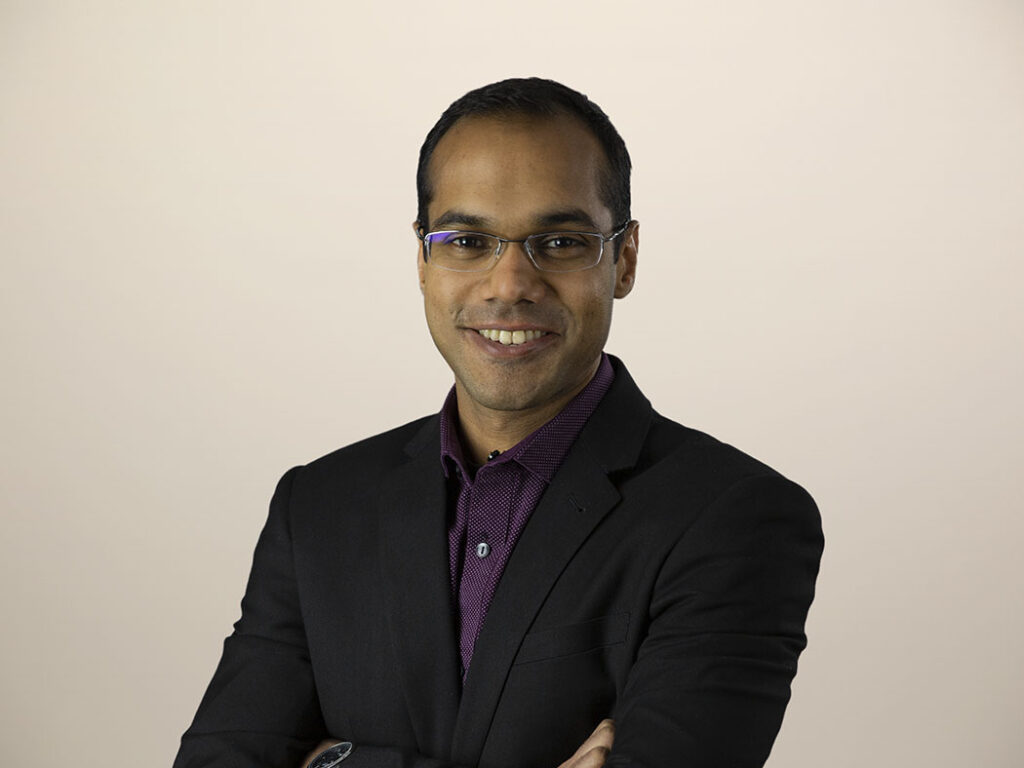Forr The Planet: Sustainability Interview Series — Oracle
Photo by Glenn O'Donnell
In my research pursuit of technology sustainability, I speak with many technology and business leaders around the world about their sustainability initiatives. Occasionally, I encounter someone doing something special in this important business quest. I hope to interview as many of them as I can and share their insights with you.
The second in this series is with Rich Kroes, Vice President, Global Sustainability at Oracle. I spoke with him on February 9, 2021, particularly about the Oracle circular cloud and client questions to Oracle on sustainability.
Abhijit: Rich, thank you for joining us. I will start with a basic question on Oracle’s motivations for taking sustainability seriously. What are you seeing from clients?
Rich: We have several different drivers for our internal sustainability strategy. First, as a leading global company, we have a responsibility to manage our business the right way — making sure what we do is ethical and sustainable.
The second key driver is our customers. We are a customer-driven organization, and the many hundreds of thousands of customers that we serve also are increasingly prioritizing sustainability as part of their business, so we respond to those needs and try to help our customers be successful in their own right. That includes IT platforms and capabilities that are required to support the work needed to make organizations more sustainable.
The third pillar is our employees. Our employee base really cares, and we look to offer our employees opportunities to get engaged, whether that’s through volunteering or joining a green team in their local office.
Abhijit: What questions are you being asked by customers? Are there specific projects that Oracle is involved in with customers both as a cloud provider and as a technology provider?
Rich: We get a lot of questions from our customers on sustainability. I am not saying sustainability makes up the whole RFP, but it is definitely included in the RFP. Historically it would be questions around what programs we have; what goals we have; and what processes we have in place around sustainability. More specific questions may be around energy usage, waste, and water.
There is also a compliance angle since we are a hardware manufacturer as well. We are in a low-volume, high-value business in terms of hardware manufacturing, but there are a lot of compliance questions that come along with that in terms of certifications and standards — especially coming out of Europe, but also from the rest of the world.
Increasingly, we are also seeing questions around the cloud. As a significant portion of the customer base moves to the cloud, they want to know the impact of running their applications in the cloud. We are also getting more detailed questions around renewable energy use.
Abhijit: What specifically is the circular cloud according to Oracle? What are its major pillars?
Rich: The idea of having a more circular product or service is the concept that the equipment we manufacture reemerges back into the forward supply chain at the end of its useful life, thereby reducing pressures on extracting new minerals and other materials out of the earth. We are in a unique position as an enterprise software company in that we manufacture our own hardware and have great visibility into that process. To help address this, we have a series of design-for-environments principles which are part of our design guidelines. These guidelines include 10 different components, including designing for costing, designing for usability, designing for serviceability, as well as designing for the environment.
So, up front we think about the materials used, considerations like increasing recycled input materials, all the way through to how the product will be disassembled and recycled at the end of its useful life. These design elements are highly impactful by incorporating total lifecycle thinking. We already have an award-winning take-back program for the equipment that our customers retire, which last year resulted in 99.6% of those materials being reused or recycled. But with our cloud, we will now have visibility on 100% of the hardware that we put into the market, thereby offloading those recycling responsibilities from our customers.
Abhijit: Well, that brings me to my next question around the business benefits of sustainability initiatives that Oracle is seeing. What are the major tangible benefits that Oracle is seeing? Do you see green dollars come out of sustainability initiatives?
Rich: The most direct value comes out of cost savings, whether it’s being more energy efficient, eliminating unnecessary processes, eliminating unnecessary materials, looking for ways to manage waste streams more efficiently, looking for ways to compost or recycle, and where we can actually in some cases recapture value.
In addition, sustainability has become an important area for many in our employee base. We do annual employee surveys and in our most recent survey, more than 92% employees said that they are more loyal to an organization that takes its environmental responsibility seriously. That is a very significant number especially given how hard we compete for the talent in our sector. We have not directly quantified this in terms of dollars, but clearly a very critical measurement of sustainability is how important it is for talent attraction and retention.
Abhijit: What are the biggest sustainability initiatives that Oracle will focus on for 2021?
Rich: Renewable energy use is certainly a big focus for us along with lowering our emissions, especially in the cloud. In 2020, we set a goal to have our cloud be 100% renewable by 2025, so we will be working hard towards achieving that.
The second is the area of the circular economy — thinking about everything from design to delivery to operations and servicing to equipment retirement. Again, the cloud is critical in this regard in enabling us to simplify our prior business practices of shipping hardware and parts to tens of thousands of customers. Today, we have a much smaller set of Oracle-run data centers that we’re maintaining, which enables significant opportunities to lower the overall environmental footprint of the technological capabilities which we deliver.
Supplier engagement is the third area — not just in our direct supply chain with respect to our hardware business, but also on the indirect supply chain, where we have a very significant amount of spend. We are going about this in a strategic manner in terms of focusing on our top suppliers, who in turn have the most impact in their own operations.
I would also note the unique situation we are in now with COVID-19. It has changed our thinking on how we operate our real estate and facilities. I think there will be opportunities for us to rethink how we can operate more sustainably. As an example, we have set a new goal to reduce emissions from employee travel. On the deployment side, our consulting teams are realizing that they can be highly effective doing remote implementations. In the past when ideas of remote or virtual activities were raised, there was hesitation due to the unknowns. Now we have proven it is indeed possible, in many cases enabling us to deliver even more business value.
Abhijit: Thank you Rich for your time and the details on what Oracle is thinking about in sustainability.
Rich: Thank you!
*****
This interview was conducted by analyst Abhijit Sunil, in association with Renee Taylor, at Forrester Research.
Abhijit’s upcoming research on sustainability includes the ROI of sustainability and an analysis of the top client questions on sustainability. To learn more about Forrester’s sustainability research, reach out to asunil@forrester.com or retaylor@forrester.com.

